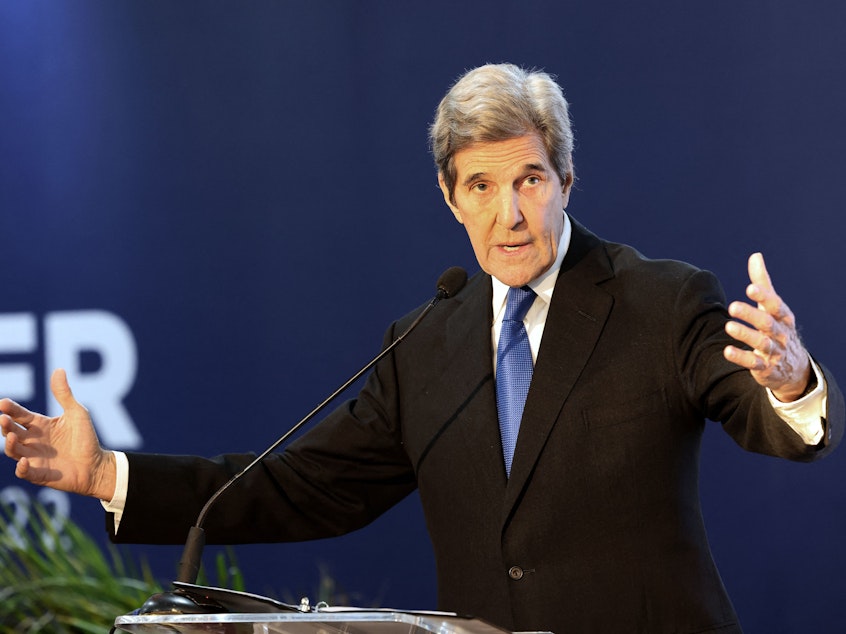John Kerry to step down after 3 years as Biden's top climate diplomat

After three years leading the Biden administration's efforts to work with other countries to curb climate change, John Kerry is planning to leave his role as climate envoy, a source close to his office confirmed to NPR.
Kerry's decision comes on the heels of the recent United Nations climate summit in Dubai, COP28, where for the first time the final agreement said the world needs to be "transitioning away" from fossil fuels. Burning fossil fuels such as coal, gas and oil is the biggest cause of global warming.
Axios, which first reported Kerry's plans, reported that Kerry intends to leave his post later this winter and will join President Biden's re-election campaign.
Kerry, who served as secretary of state during the Obama administration and was the Democratic presidential nominee in 2004, has been central in Biden's efforts to establish the United States as a climate leader internationally after decades of inconsistent and limited action.
As special envoy, Kerry helped to establish and promote multilateral climate agreements between the United States and other top polluters and encouraged allies to make more robust pledges to reduce emissions.
Sponsored
His office helped spearhead agreements to help countries transition away from planet-heating coal, including in Indonesia, Vietnam and South Africa.
And Kerry played a key role in increasing climate cooperation with China. China and the United States are the two biggest global polluters. At 2021's COP26 summit in Scotland, the U.S. and China announced they would speed up emissions reductions, including drawing down China's coal consumption.
"It's the fastest we could get at this moment here in Glasgow," Kerry told NPR's Ari Shapiro. "But it's the first time China and the United States have stood up, the two biggest emitters in the world, and said, 'We're going to work together to accelerate the reduction.' "
Despite his successes, Kerry has faced considerable criticism on the world stage from countries who are frustrated by what they see as the chasm between U.S. rhetoric and action, including falling short of promised climate development aid.
As part of the 2009 Copenhagen climate accord, the United States and other major world economies pledged to provide $100 billion annually to help poorer nations adapt to climate change and reduce emissions. The world may have finally reached that goal in 2022, but experts agree that number is far from what's actually needed and that $2 trillion annually may be a more accurate estimate for what is needed. [Copyright 2024 NPR]



